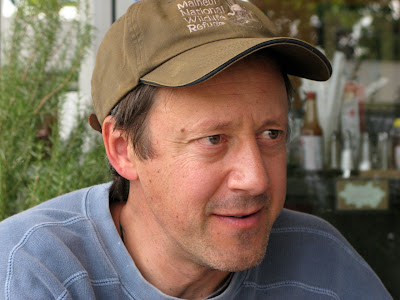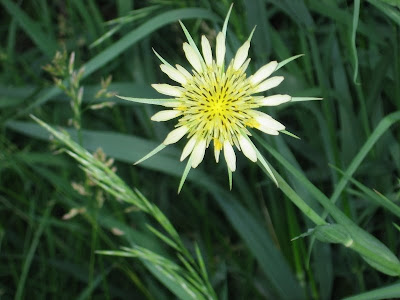
Within and around the earth,
Within and around the hills,
Within and around the mountains,
Your authority returns to you.
–A Tewa Pueblo Prayer
Within and around the hills,
Within and around the mountains,
Your authority returns to you.
–A Tewa Pueblo Prayer
The poem, above, has great significance, for it is in the context of the earth, hills, and mountains–indeed, the landscapes in which we live, move, and breathe–that we express and embrace our own unique authority, connecting with those other sentient beings–human and other-than-human–with whom we share this planet.
Through the creative arts, whether it be dancing, painting, or transformative language arts, people can discover and affirm their own unique authority, bringing forth and embracing that which is most authentic about themselves.
The Story of Sherry
Forty-five years old and severely depressed, “Sherry” (name changed to maintain confidentiality) was admitted to a mental health treatment center after a failed suicide attempt.
While on shift one evening at the center, I discovered that one of Sherry’s interests was poetry-writing. So I knocked on her door and invited her to write poems together.
“Sure,” she said, “but then I’m going back to bed.”
So we sat at a table, picked out words from a bowl, and used these words as springboards for our poems. After sharing our creations, we spoke
 about Sherry’s interest in poetry-writing.
about Sherry’s interest in poetry-writing.When Sherry’s condition had improved somewhat, she handed me a poem that she had found in a magazine. The poem dealt with issues of separation and loss, much like those Sherry had experienced through the loss of her marriage. Eventually, she shared with me a poem that she herself had written. In it, she spoke about her desire to “embrace change.”
Prior to her departure from the center, Sherry told me that she had begun to write poems regularly. She reflected on the poetry-writing process and how it had helped her unlock emotions and begin to work through her depression. Then she handed me a poem in which she spoke about her desire to “learn new things” and “create something new” in her life. She described the poetry-writing process as a way of “breaking up the log jam.”
Poetry-writing was not a magic pill for Sherry, but it did give her an opportunity to begin to work through her depression and to gain some perspective on her divorce. In the short time that I knew her, I witnessed her gradually opening up as she began to express herself through poetry.
A Consideration of Terms
The words “healing” and “transformation” are both employed in transformative language arts environments. The word heal derives from the Anglo-Saxon word haelan, to heal. Related words include hale, meaning in good health, or sound; and holy. Transform derives from the French transformer, which means to change the form of, to give a new form to, or to metamorphose. Whereas the word heal implies restoration to a state of wholeness or health, transform implies movement toward a new state of being.
One of the goals of the transformative language arts process is to restore one’s sense of wholeness. Another is to create the conditions whereby transformation is possible.
...Whoever you are, no matter how lonely
the world offers itself to your imagination,
calls to you like the wild geese, harsh and exciting–
over and over announcing your place
in the family of things.

From “Wild Geese,” by Mary Oliver
How does transformative language arts help us deepen our connections with self, others, and nature? Three core tenets are critical to the process.
First, everyone in the group has something unique and valuable to share. As part of the group, people announce their place in the “family of things” through the words they speak, the poems they share, and even through the simple act of announcing their name at the start of every group session.
Second, everything in nature is divine. This tenet is reflected in the way in which everyone in group is treated with integrity and respect. We listen deeply, speak from the heart, and practice confidentiality. Respect extends beyond the human community to include Raven, Spider, Cedar, indeed, anything we bring into the process by way of the imagination, experience, memory, or dreams.
The third tenet, we are all connected, is reflected in the words of Walt Whitman, in his poem “We Two, How Long We Were Fooled.” He says,
...We are Nature, long have we been absent, but
now we return,
We become plants, trunks, foliage, roots, bark,
We are bedded in the ground,
We are rocks,
We are oaks, we grow in the openings side by side...
In group, we discover and express our own essential nature and honor that of others. When we meet, we seat ourselves in a circle, ancient symbol of wholeness, totality, and completion.
§
I am one who
eats his breakfast
gazing at morning glories.
Matsuo Bash
Poetic stems, creating springboards from poetic lines, and using visuals or aromas are among the many tools employed to help us re-connect with self, others, and nature. Poetic stems invite people to add their own responses to lines of poetry. The line “I am one who,” from the poem, above, can evoke such responses as “I am one who likes to laugh,” “I am one who loves the ocean,” or “I am one who feels sad.” I remember the time an individual responded, “I am one who does not want to share.” We move toward authenticity.
Other poetic stems include “If you don’t know the kind of person I am....” (William Stafford) “I am so thankful I have seen...” (Alice Walker), and “In time of silver rain, the earth...” (Langston Hughes). The goal of poetic stems is to give people an opportunity to share something unique and honest about themselves.
Springboards are similar to poetic stems, except that lines are used as springboards into longer poems. An excellent example of a springboard is the line, “I have roads in me...” from the poem of the same title by Jimmy Santiago Ba
Other evocative writing approaches include writing in response to visuals, such as photographs or post cards; to items from nature, such as sand dollars or stones; or to aromas. Aroma vials–including rosemary, chocolate, cinnamon, or coffee–stimulate the olfactory sense, but also the sense of taste. Through the memories evoked, they can lead us into a whole pallette of experiences about which to write.
§
And what if my words,
my fledgling poems,
were children, were toddlers
trying first steps,
tumbling, skinning knees,
squealing with glee,
splashing mud,
making a mess,
discovering themselves?
Would I hold them
at arm’s distance,
disown them, hide them,
say what I imagine
others will think—
that, after all, they
really aren’t very good?...
From “As They Are,” by Barbara McEnerney
While working at the hospital recently, I invited a patient to participate in an expressive arts circle that I was facilitating. The patient declined, stating, “When I was a kid, I was told that most kids can do art, but that I was the one exception. Ever since that time, I have not done art.”
The above example serves to illustrate one of the reasons that critique is not part of the transformative language arts process. Critique can cut off the creative flow at the very time an individual is beginning to open up. Therefore, one of the group covenants is that we operate from a place of curiosity, rather than critique.
Operating from the curiosity model, people can say anything they want to about their poem–how they came to write it, feelings and emotions it evokes, or how it is related to events going on in their life. When finished, they may invite reflections from the group. Reflections include listening to the poem and selecting from it a detail that stands out. It can be an image, line, or word; or it can be a memory, association, or question the poem evokes. The curiosity model helps support the atmosphere of safety, security, and trust, which is another goal of the transformative language arts process.
§
Transformative Language Arts, as practiced by myself and others in the field, continues to evolve. Recently, for example, I introduced group drumming into the process, this as a way of helping people move closer to the underlying pulse of language and of providing a unifying experience before writing. I am also working with authentic movement practitioner Elizabeth Russell, co-director of Bodies in Balance, in Portland, OR, to integrate transformative language arts with authentic movement.
We are all creative. It is our birthright as human beings. When we tap these resources in an atmosphere of safety, security, and respect; when we share from a place of openness and honesty, we move toward wholeness and authenticity. Through the creative arts, we are all connected to the sacred web of life.
Brian Moore holds an MA in Transformative Language Arts from Goddard College, in VT, and a certification in poetry therapy. Director of the Cascadia Arts and Healing Center, in Eugene, he facilitates transformative language arts groups at the Pathways Learning Center and the Sacred Heart Medical Center, in Eugene. He also facilitates Healing Landscapes, a writing group exploring the connections between the expressive arts and deep ecology. For further information about Brian and his work, or for information about upcoming workshops and events, contact the Cascadia Arts and Healing Center, in Eugene, at (541) 543-6380. For information about Body Story, Tree Story, an integrated transformative writing and authentic movement workshop, contact the Cascadia Arts and Healing Center, or go to www.bibpilates.net.















